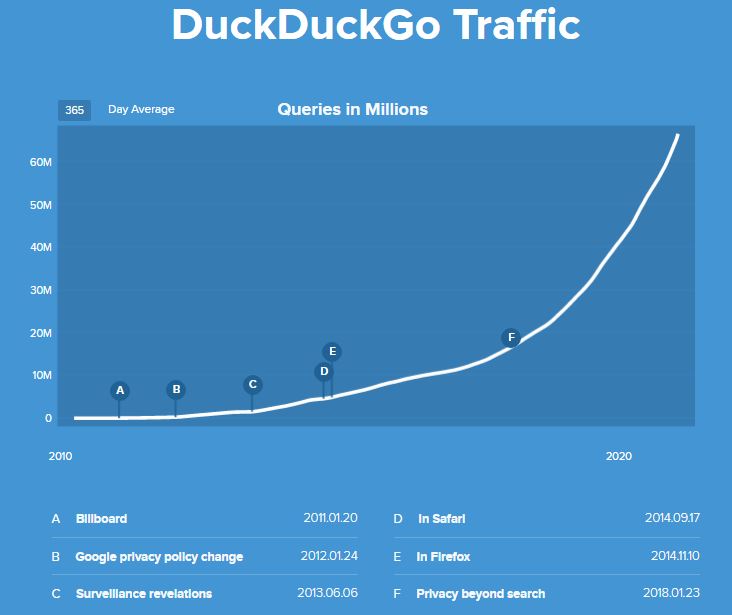DuckDuckGo surpasses 100 million daily search queries for the first time as users flock to privacy-focused search engines

Google currently controls 90% of the internet search. The tech giant also dominates the browser market with its Chrome browser accounting for about 70 percent of the global desktop internet browser market share, according to December 2020 data from StatCounter. However, Chrome is not just a browser, it’s also a data collection tool. The amount of personal data Google collects from Chrome also depends on your privacy settings.
Giving the well-known privacy issues with Google and a couple of other major search engines like Bing and Yahoo, people are beginning to look for alternative search engines especially from companies that support their values and causes.
Over the weekend, DuckDuckGo announced it recorded on Monday its first-ever day with more than 100 million user search queries, a major milestone since its inception 12 years ago. The historic came in the same week WhatsApp competitors Signal and Telegram also reported a massive increase in downloads after WhatsApp says it will share data with Facebook.
Between January 6 and January 10, Signal saw approximately 7.5 million installs globally through the Apple App Store and Google Play store, according to Sensor Tower. Telegram saw 5.6 million downloads globally from Wednesday through Sunday, according to Apptopia.
https://twitter.com/dhh/status/1350411477858070528
DuckDuckGo (DDG)’s popularity comes after the privacy-focused search engine expanded beyond its own site and started to offer mobile apps for Android and iOS. The search engine also has a dedicated Chrome extension. In a September 2020 tweet, DDG said more than 4 million users installed these apps and extensions.
Last week, we wrote a piece titled, “Alternatives to Big Tech.” In the article, we shared some of the best alternatives to Big Tech. The list ranges from browsers to alternative social media apps. At the top of our list of the best alternatives to Google Chrome is DuckDuckGo, an internet search engine that emphasizes protecting searchers’ privacy and avoiding the filter bubble of personalized search results.
Unlike Google Chrome and other search engines, the privacy-focused search engine dubbed itself as a browser that “never stores your personal information.” On its search home page, DuckDuckGo also states:
“We don’t store your personal information. Ever. Our privacy policy is simple: we don’t collect or share any of your personal information.”


